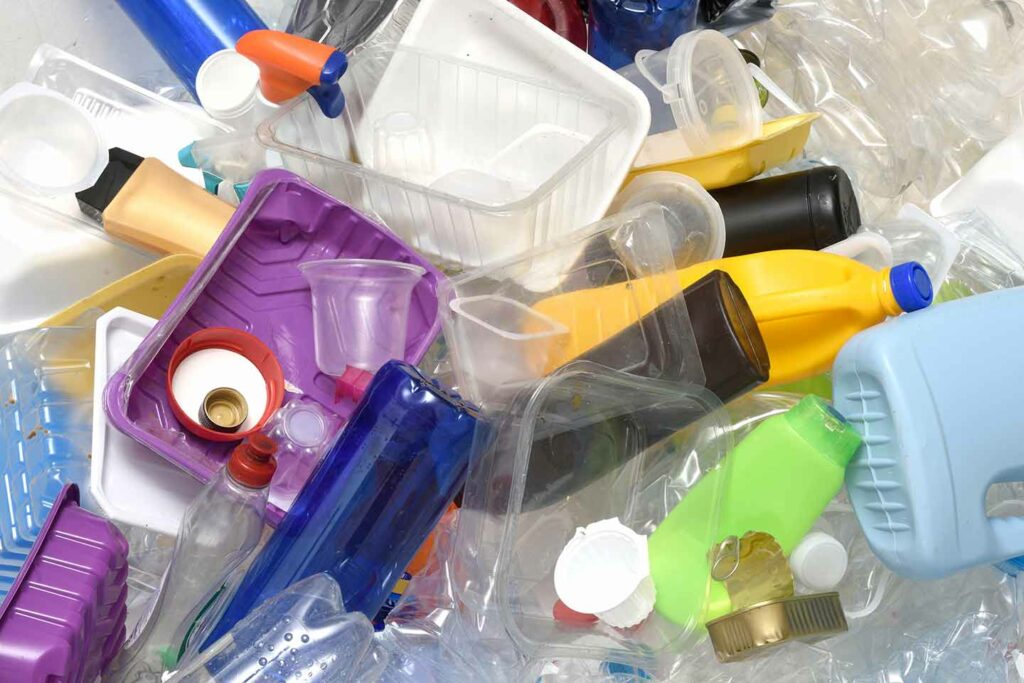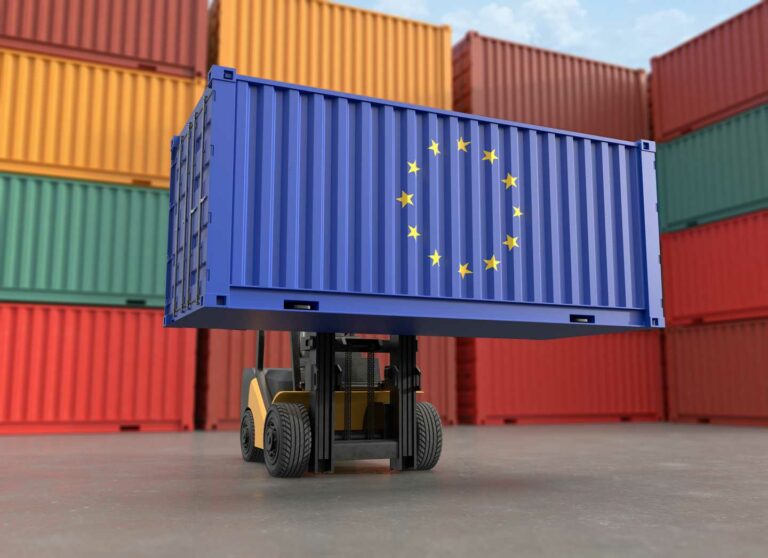Let’s find out how this tax measure is changing the Spanish economic landscape.
With the new tax on non-refillable plastic packaging being implemented in Spain from 1 January 2023, many Spaniards are wondering what impact it will have on all sectors. One thing is certain: this new tax signals a major change, as if the wheel is turning towards a more sustainable economy.
In this blog, let’s find out how this tax measure is changing the Spanish economic landscape.
What is the new tax on non-refillable plastic packaging?
The new Spanish law on waste and a circular economy foresees the introduction of a new tax on non-reusable plastic packaging from 1 January 2023. This measure will apply to all non-reusable plastic boxes, packaging, bottles and bags entering the Spanish market and will be accompanied by a fee of €0.45 per kilo of plastic.
Which products are affected?

This tax will particularly affect the food and other consumer goods sectors, as well as the hotel, textile, technological goods and hardware sectors.
How much is the tax?
As mentioned above, this new tax will be €0.45 per kilo of plastic for products whose packaging is affected by it.
What are the impacts of this new tax?
The additional taxation on operators who manufacture or purchase plastic packaging will have a direct impact on the price of food and other products affected by this measure. In addition, it will also lead to changes for the businesses affected by its application.
Read more on the same topic
Spain: New Tax on Non-Reusable Plastic Packaging
What are the impacts on consumers?
For consumers, the price increase caused by this new measure will affect their budget and purchasing power. In addition, some purchases may prompt them to buy less or to look for cheaper alternatives in order to ensure greater purchasing power for all in Spain.
What are the impacts on businesses?
Businesses will have to review their commercial and marketing strategies in order to limit the financial impact of the additional taxation imposed on their foodstuffs and other items covered by the new law. The additional costs incurred will also have a significant impact on their financial profits and will need to be factored into their accounts in order to adjust the price of products sold.
How can businesses adapt to this new tax?
Companies will have to take measures and adapt their processes to reduce the direct financial impact of the tax on their business.
What are the ways to reduce the impact of the tax?
One of the main solutions is to use less non-reusable plastic packaging and to switch to more sustainable products, such as glass, wood or other biodegradable containers. Companies can also offer their customers recycling programmes to encourage them to reuse packaging several times. In addition, it is important that they carry out a thorough review of their supply chain, as this tax will have a significant impact on the management and transport of goods.
What steps should be taken to adapt to this new tax?

Businesses need to implement a strategy that will include reviewing, optimising and choosing the right packaging to accompany their products and services to minimise the additional cost of the extra taxation. They will also need to consider the impact of the change on consumers and position themselves clearly on this issue so that they can benefit from a sustainable and environmentally friendly product.
What are the advantages and disadvantages of this new tax?
Although this measure aims to limit the excessive use of non-reusable plastic packaging and encourage the use of sustainable products, it also has a number of advantages and disadvantages for the consumers and businesses concerned.
What are the environmental benefits?
The first and most important reason is the protection of our planet: Less consumption of non-reusable plastic means less marine pollution, less waste generated, fewer animals killed or injured by plastic and a better overall ecological quality. The promise of better protection for our environment can be fulfilled if the law is properly enforced.
What are the disadvantages for consumers and businesses?
Unfortunately, as mentioned above, the price of products affected by this measure will increase. Another negative consequence is that companies will have to adapt to the implementation of the law and make additional investments to fulfil the obligations imposed by the law.
What is Spain’s position on this new tax?
In Spain, there is a general consensus on the need to reduce the excessive consumption of non-reusable plastic packaging and to switch to a more sustainable and environmentally friendly use. The additional taxation will and should encourage businesses to adopt sustainable solutions to limit their environmental and economic impact.
What is the position of other European countries?
EU Member States have launched a joint initiative to significantly reduce the use of non-refillable plastic packaging in Europe. Several countries have introduced or are expected to introduce a specific tax on plastic-containing products that encourages manufacturing and trading companies to adopt more responsible practices. However, each country has its own tax policy and strategy for implementing these measures.
What is the position of international organisations?
Several international bodies such as the United Nations (UN), the World Trade Organisation (WTO) and the European Environment Agency (EEA) endorse this initiative to protect our environment. The ultimate goal is to promote better management of natural resources, sustainable and inclusive growth, and a significant reduction of plastic waste and plastic-related pollutants in all marine environments worldwide.
With the new tax on non-refillable plastic packaging coming into force in Spain on 1 January 2023, it is fair to say that this measure will affect not only consumers but also a wide range of industries. The surcharge will range from €0.45/kg for the products concerned and will have much wider implications for the entire Spanish trading system. After analysing the strengths and weaknesses of the foreseeable impacts, it is clear that constant adaptation will be required to accommodate the changes that will follow. With such a goal in mind, it is hoped that this new tax will enable Spain to make a significant shift towards a sustainable and responsible economic policy.
ASD Group, a specialist in international taxes for over 20 years, particularly in Spain, assists you in the management and processing of this tax on non-recyclable plastics. Would you like to know more? Discover our service.




